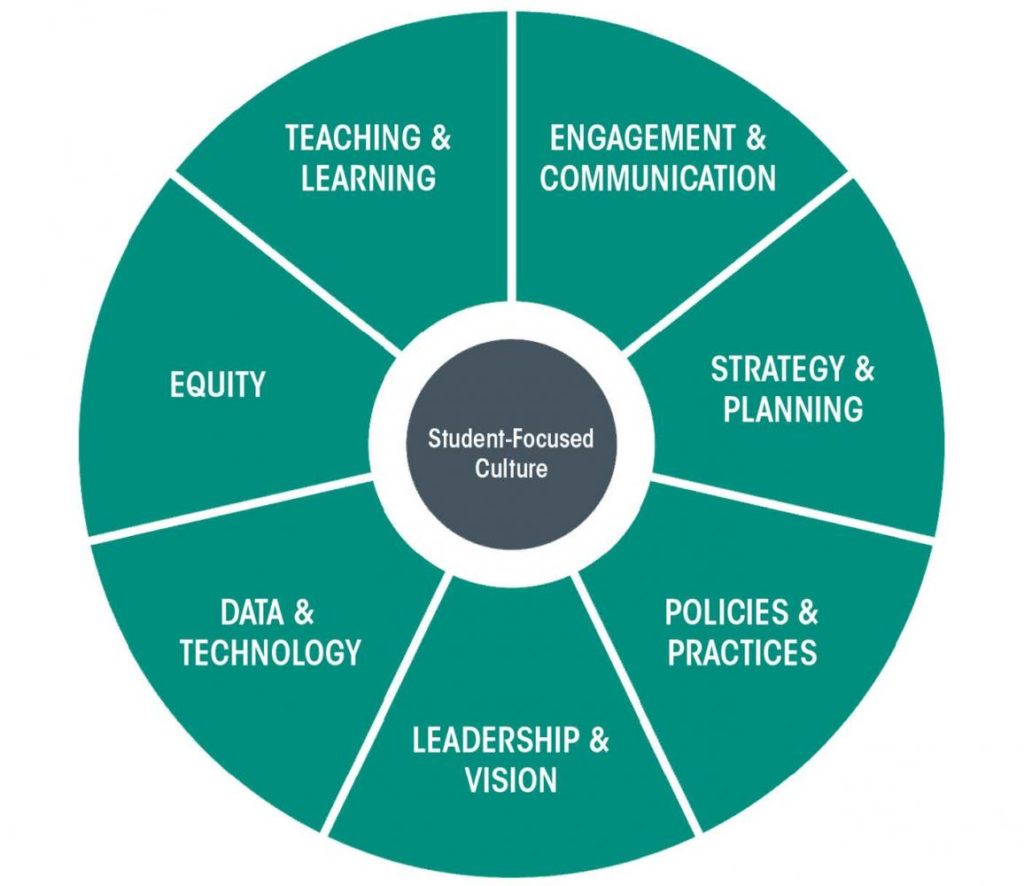
Achieving The Dream
Achieving the Dream (ATD) leads a growing network of more than 200 community colleges committed to helping their students, particularly low-income students and students of color, achieve their goals for academic success, personal growth, and economic opportunity.
About Achieving The Dream
ATD is a national nonprofit that helps colleges make progress in closing academic achievement gaps and accelerating student success by using data to inform a unique change process that builds each college’s institutional capacities in seven essential areas.
Resources (Internal Only)
ATD, along with more than 100 experienced coaches and advisors, works closely with 160 network colleges in 39 states and the District of Columbia to reach more than 4 million community college students.
Network colleges benefit from the collective learning of the national ATD Network of institutions and partners and from ATD’s 15 years of experience innovating and anticipating future needs and issues in the face of continual change. Colleges in the ATD Network transform at multiple levels using ATD’s successful coaching process that is constantly informed and improved by leading research and development projects that address emerging areas of need. College leaders are given a forum to discuss issues and challenges with their peers or to try new strategies, innovate, and improve. ATD’s staff and coaches serve as trusted advisors and facilitators to help build capacities that research shows makes a difference in student outcomes.
A New Beginning
At a time when state funding to Mississippi’s 15 community colleges serving 75,000 students is stagnant, it is hard for colleges to make the reforms necessary to boost retention and completion. Thanks to a four-year, $900,000 grant from Mississippi’s Woodward Hines Education Foundation (WHEF) and Achieving the Dream (ATD), MGCCC and Coahoma Community College are able to join the Achieving the Dream’s premiere National Reform Network to advance student success.
In June 2018, a team from MGCCC and other colleges new to ATD met with their ATD coaches to learn a process for gathering and analyzing multiple data sources that help them better understand the student experience, prioritize resources and strategies, lay groundwork for addressing equity gaps, and monitor and evaluate impact.
First Steps: The Survey
Many efforts to improve student success at community colleges involve relatively small innovations or changes at the margins. After more than a decade of experience, Achieving the Dream has learned that improving student success on a significant scale requires colleges to engage in bold, holistic institutional change.
The ICAT is an online self-assessment that helps colleges determine their current level of capacity in key areas that are essential for colleges to create a student-focused culture that promotes student success. Mastering these capacities will help the college scale other interventions such as guided pathways or holistic student supports.
In October of 2018, MGCCC employees took the ICAT survey. Input was focused on the seven priorities that ATD has determined that a college needs to improve student success and build a student-focused culture. The seven priorities are: Leadership & Vision, Data & Technology, Equity, Engagement & Communication, Teaching & Learning, Strategy & Planning, Policies & Practices.

Disseminating the Results of the Input
During the winter meetings held at each campus in December, MGCCC employees met for the World Café to review the data from the survey. Each forum was led by ATD-trained coaches with all employees encouraged to participate in honest discussion about our institution and the data collected during the ICAT survey. The coaches helped identify the college’s strengths and areas for improvement and generate ideas for change.
We Hear You: Next Steps
During the first few months of 2019, the college’s ATD core team and several faculty members worked together to focus the results of the ATD research (including the ICAT, the World Cafes, and student focus groups). The research revealed two primary concerns impeding MGCCC students: Advising and Financial Literacy. The ATD coaches visited MGCCC on June 4-5 to discuss the primary issues that emerged from the research and offered guidance on developing an Action Plan for implementation. The following ATD Action plan was devised and timeline developed:
ATD Action Plan and Implementation Timeline (PDF)
Summer 2019 – Planning
- Establish an Implementation Planning Team
Fall 2019 – Design and Development
- Design the base standard course framework
- Design the pilot advising modules
- Design the advising and financial literacy modules
- Develop policies, procedures, and processes
- Develop incentives
- Communication to the college community (website, etc.)
Spring 2020 – Pilot
- Roll out the Pilot of the first course
- Develop the remaining seven courses
- Training of all faculty and staff
Fall 2020 – Implementation
- Implementation
- Assessment
Student-Centered Model
With the capacity framework as a guide, ATD helps colleges integrate and align any existing student success efforts with bold, holistic, institution-wide changes that research suggests can help more students succeed.
